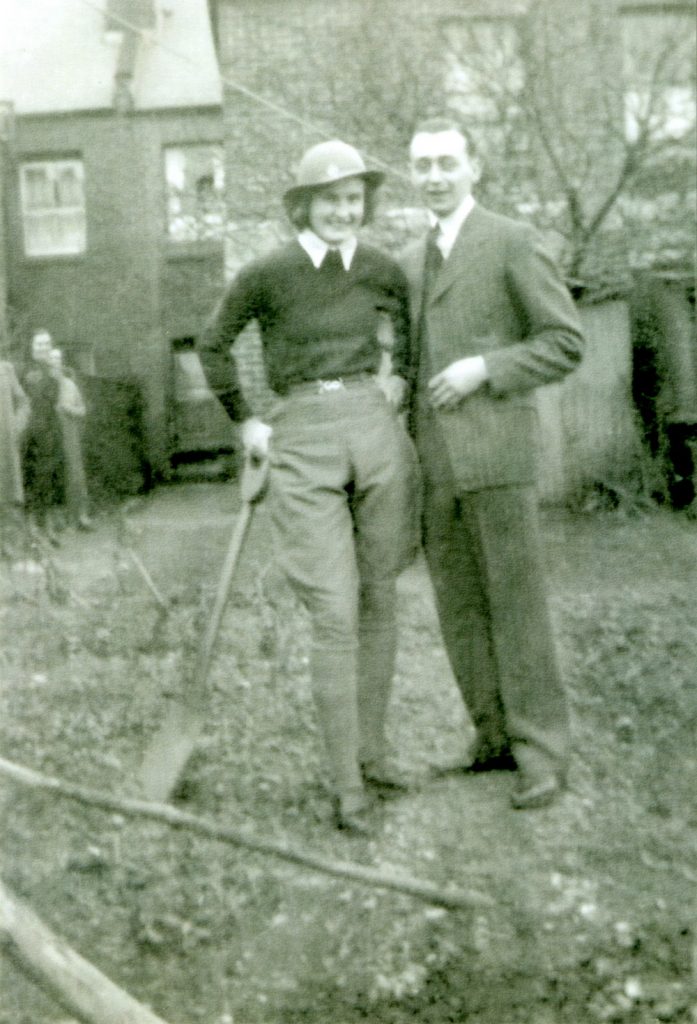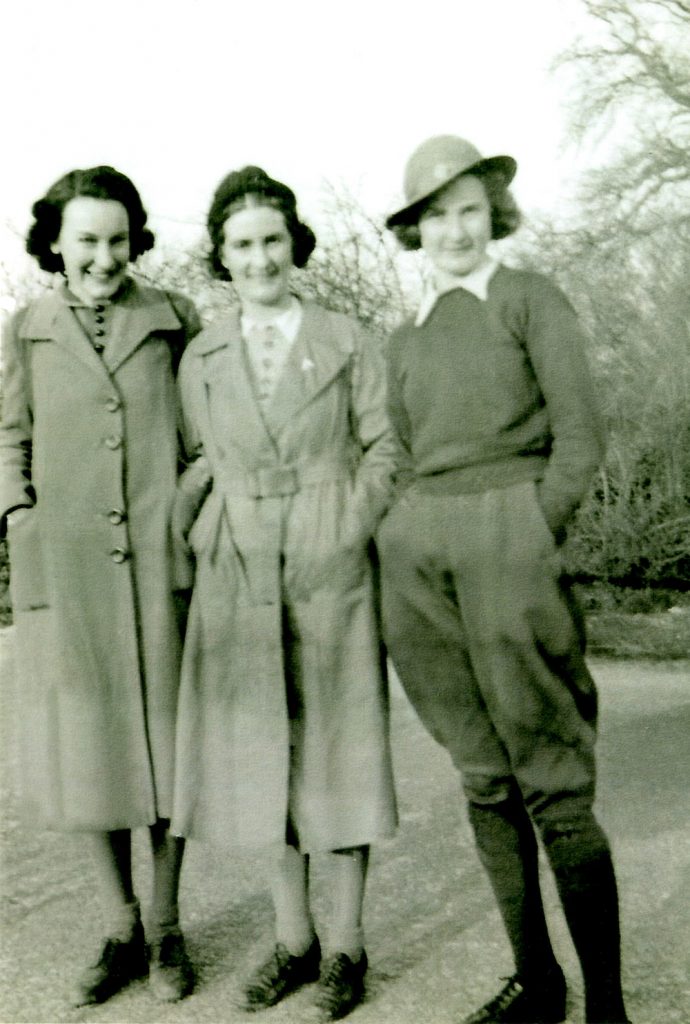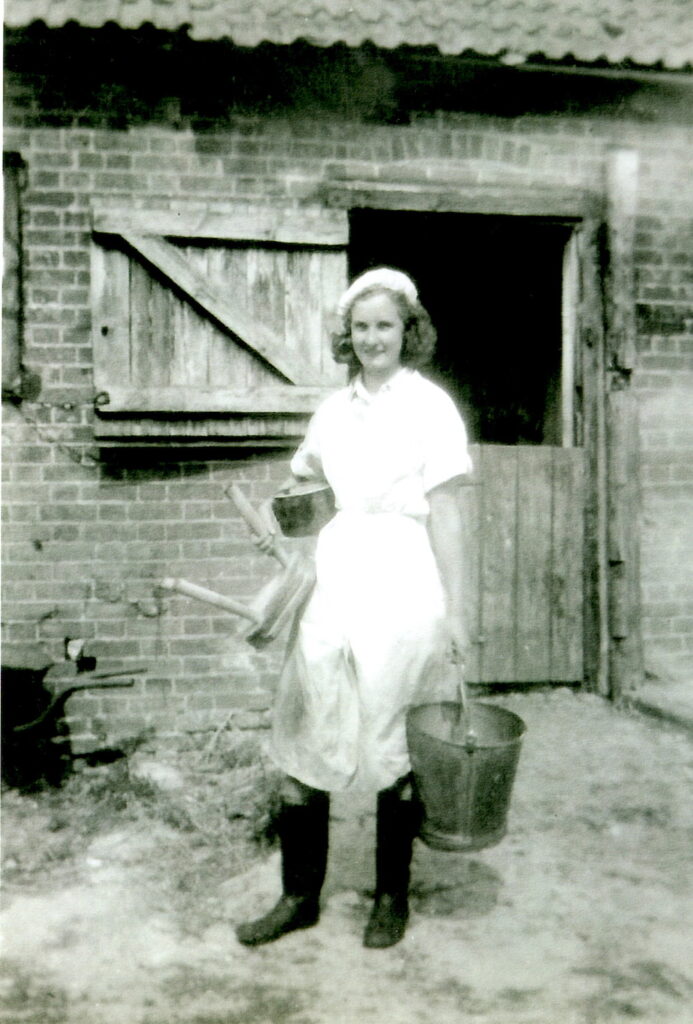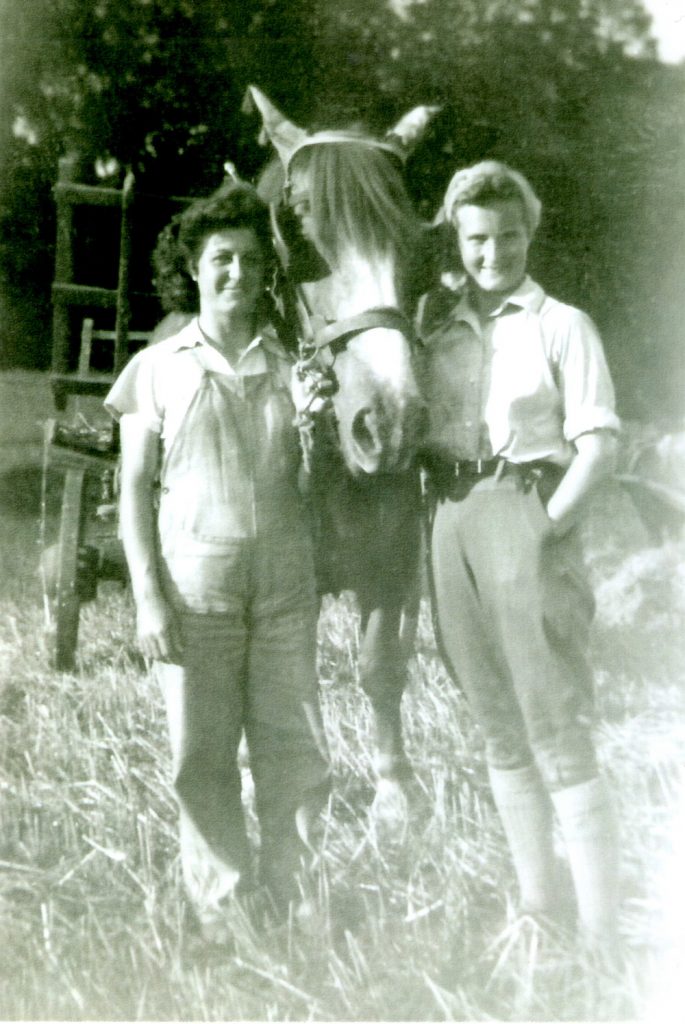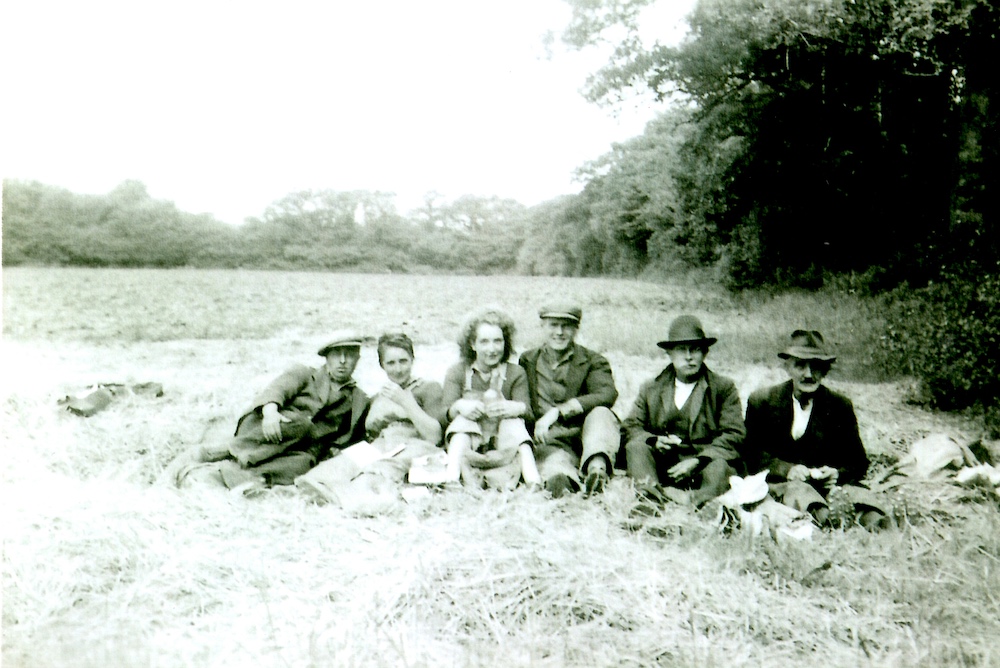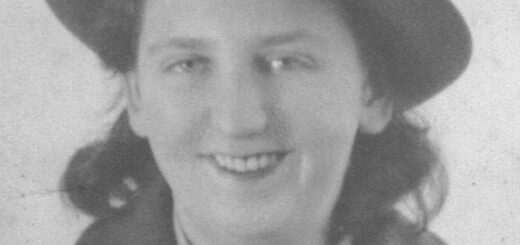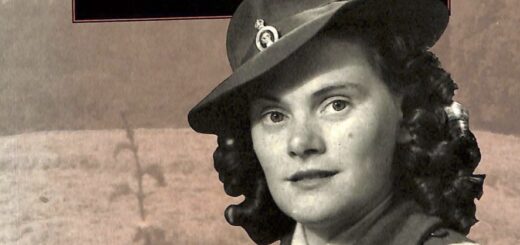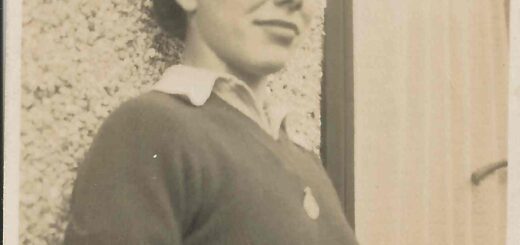Daphne Mary Banks (née Webb)
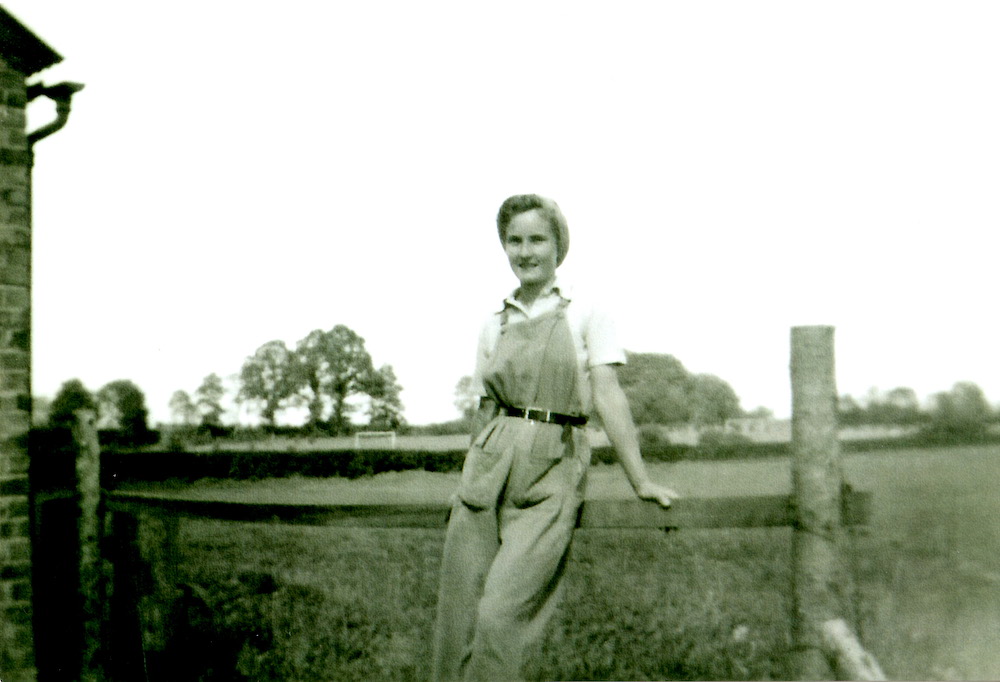
In the course of my work, I read many farming magazines. How different is the farming scene from that I faced in 1939 when I joined the newly-formed Women’s Land Army. The recruiting office was in Portland Terrace, Southampton. I really had little idea of farming, only enthusiasm inspired by romantic pictures such as ‘The Gleaners’. Poor farmers, I can imagine their horror at the idea of employing girls like me.
Fortunately, by the end of the war many land girls were appreciated for their willingness and enthusiasm for hard work. In fact, some farmers even married them!
I mostly thoroughly enjoyed my farming years, though sometimes extreme tiredness led to boredom and a desire for fresh surroundings and I would go to fresh fields and pastures new.
Firstly, though, I spent two weeks at Stockbridge. Faint, derisive smiles appeared on my colleagues’ faces when I arranged this August’, ’39 holiday. However, the weather was glorious, and I returned to my desk with a gorgeous tan.
Two months later I was ‘called up’, this time to a farm in Farringdon, near Alton.
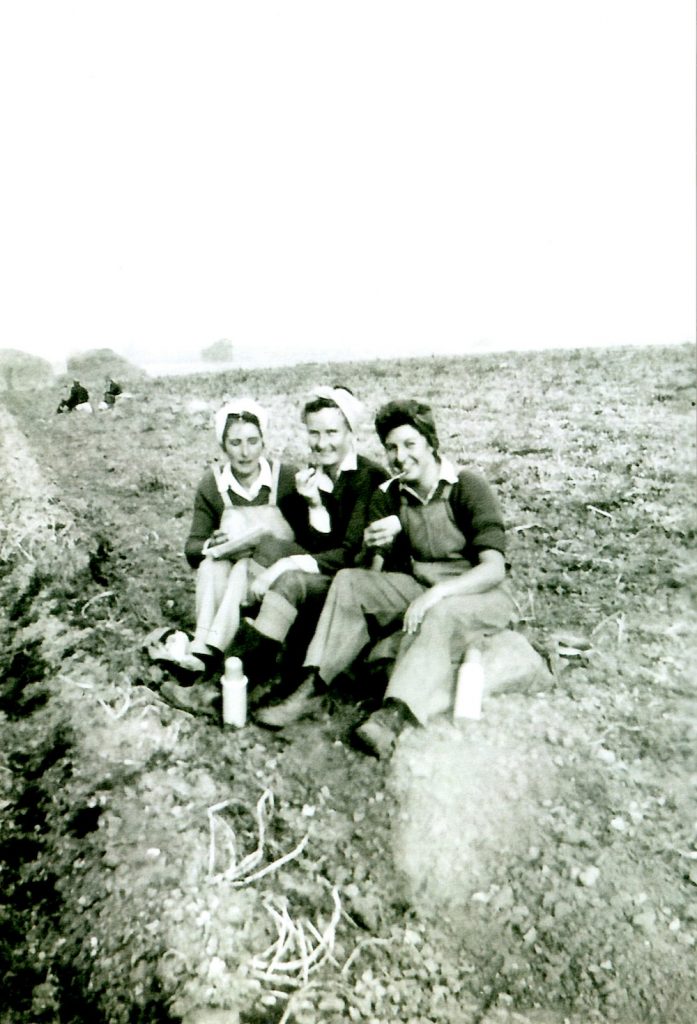
The first winter of the war was fantastic. I remember a thaw that was stopped in its tracks by a sudden massive freeze. I should have had a camera, that day. Icicles hung from just about everywhere, and the roads were lethal. Getting the cows to and from the milking sheds was almost impossible. We tied sacking over our boots so we could stay upright. Visually, though it was a beautiful a sight as I shall ever see.
I have a shocking memory for names, but two other girls I remember there were Gussie and Paddy, the latter last heard of in Lasham.
Then there was a spell in the New Forest at Minstead, where I was taught by my landlady’s husband to shoot and was introduced to poaching. This wasn’t successful, as whereas I excelled at hitting tins in the back garden, I just couldn’t kill a rabbit or anything else that moved, nor did I really want to. The fields at that farm were covered in wild daffodils in spring, an unforgettable sight.
Hurstbourne Priors, Martyr Worthy and Longparish, all such lovely villages, where we milked by hand, spread muck with horse and cart, hand-trimmed hedges and built hay and corn ricks; few combines about then.
The dust when we threshed was diabolical, but we were young and enthusiastic, and above all, patriotic.
I have such treasured memories; of fetching the cows at 5:30 on a misty morning, standing by the gate hollering until the lumbering shapes appeared out of the mist, each one known by name. Of bread and cheese lunches in the hayfields and hedgerows, keeping ourselves mentally alert with the Daily Telegraph crossword. Of a steamy hot day during a bad harvest rescuing sheaves, green with shoots and disturbing a wasps’ nest, a 100 yds. sprint to the nearest tree and quick strip-off saving me from hysterics.
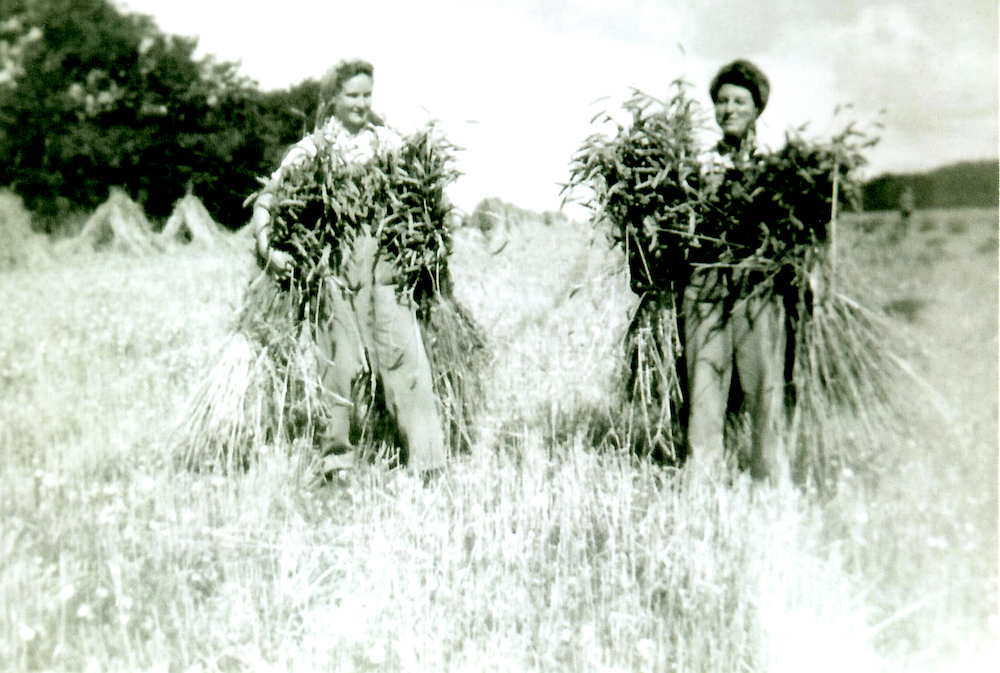
At Martyr Worthy, my landlady took me to a nearby copse one April evening to hear the nightingales; unforgettable. I wonder if they still sing there?
More names come to mind. Delphine (Stockbridge), Dorothy (Alton), Elizabeth (Longparish). Ah, Longparish; I met my husband there. He is a Londoner, loves towns and all their amenities, and thinks the countryside is only for visiting.
We made our home in Buckinghamshire, then Oxfordshire. Only recently have we come back to Hampshire to live. It is till a lovely county, but it was as a land girl during the war years that I saw it at its best.
Published in Hampshire Life, April 1979, pp. 5-6.
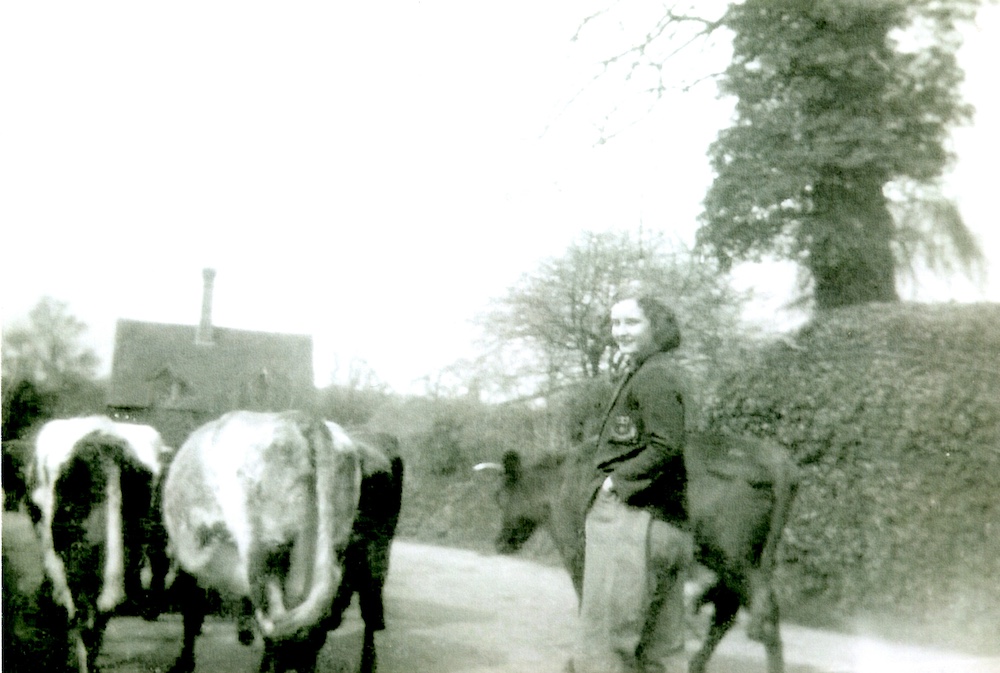
General Information
First Name(s): Daphne Mary
Unmarried Surname: Webb
Married Surname: Banks (widowed 1989). Second husband Edmonds.
Date of Birth: 11/5/1922
Place of Birth: Slough
Date Joined WLA: 1939
Date Left WLA: Either 1945 or 1946
Employment and Accommodation
Employment
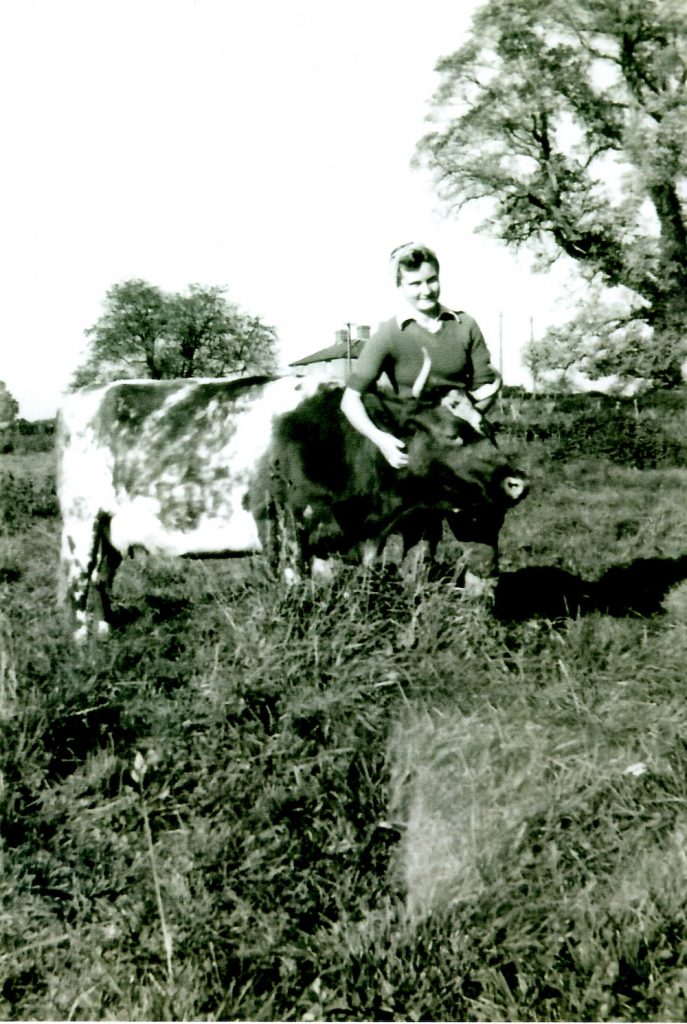
Pre-Work Training: Farm in Hampshire – Stockbridge (mum can’t remember the name)
Employed by?: Private farmer.
Dates with employer?: c. 1916 – 1918
County: Hampshire
Farm Name: Farmer’s names unknown.
Farringdon near Alton
Minstead
Hurstbourne Priors
Martyr Worthy
Longparish
Dairy work on all of the farms.
Accommodation
Accommodation in: Private billet. Always on my own in farmhouse (with the family).
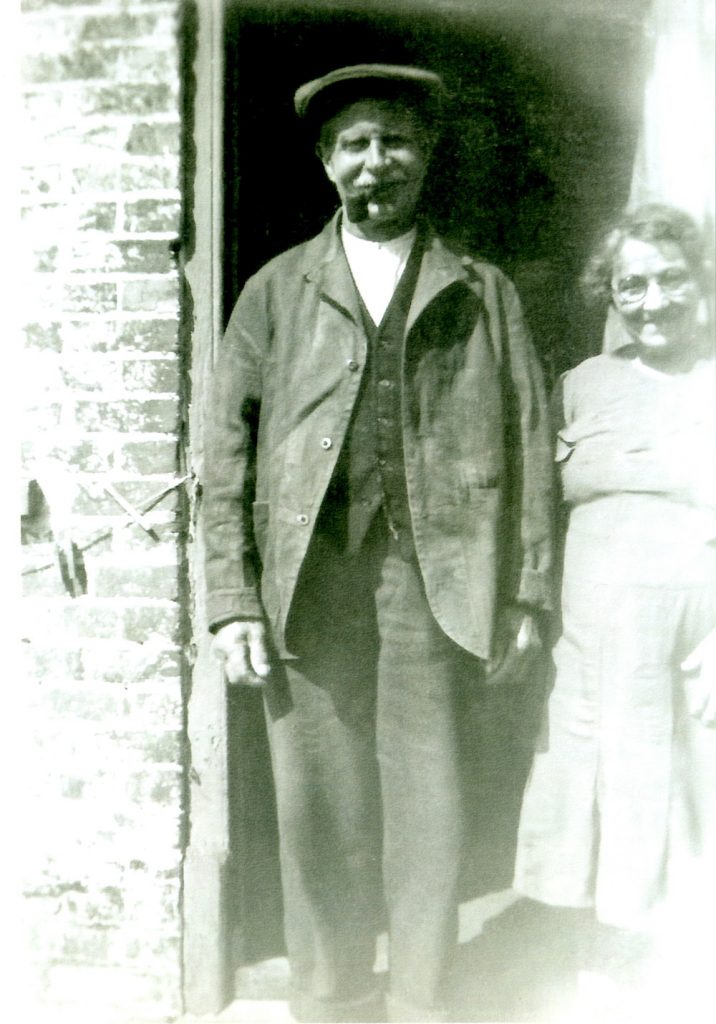
Life After War
Did you return back to their pre-war occupation? Met my husband – married 1947
What was your / their occupation after the war? Housewife
How did work in the WLA / WTC effect your/ their life? Wonderful memories
Further Information
Previous occupation: Office work
Reasons for joining: Patriotism
Family’s reaction to joining: Parents very happy with my choice.
Type of work undertaken: Dairy farming
Work liked most and least: All of the work.
Best and worst memories of time: No bad memories – I loved it all
Reactions of local people towards WLA / WTC: Supportive
Treatment by farmers or market gardeners: Treated very well.
Reasons for leaving: I met my husband and married.
Contributor Details
Name: Irana Dawson
Relationship to Land Girl: Daughter
